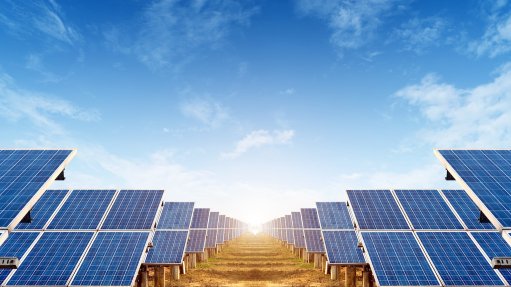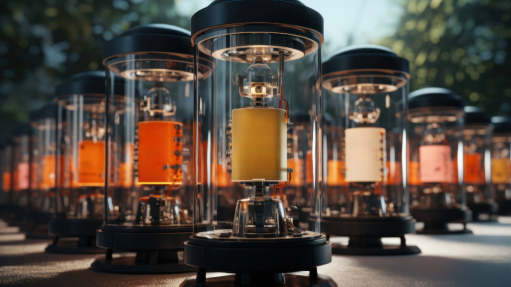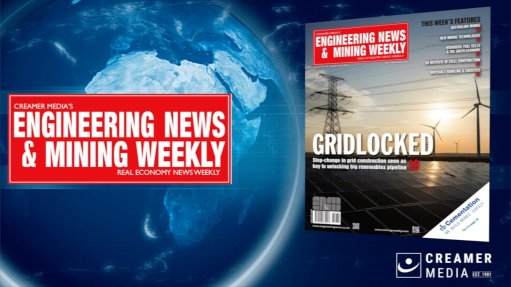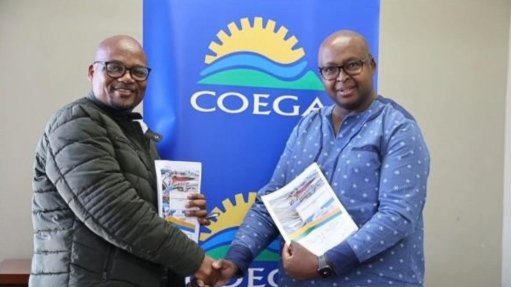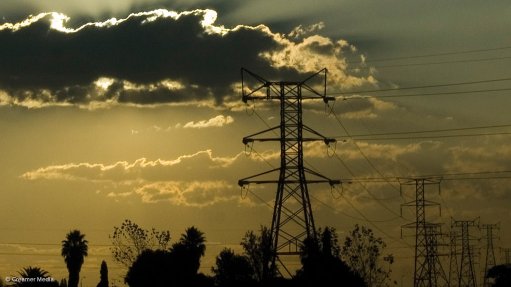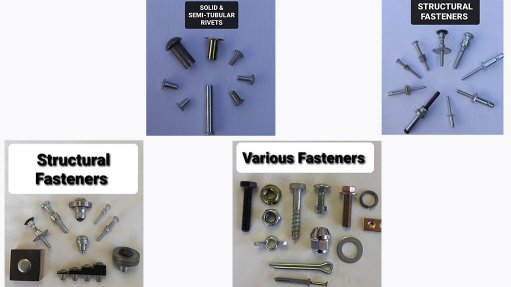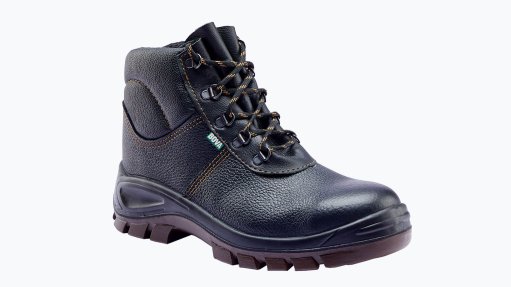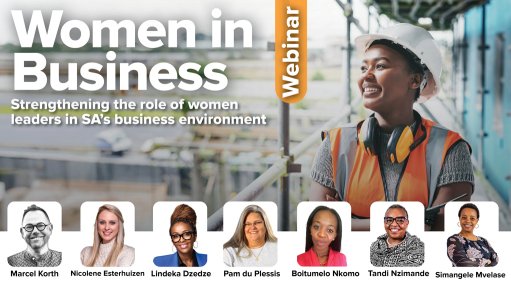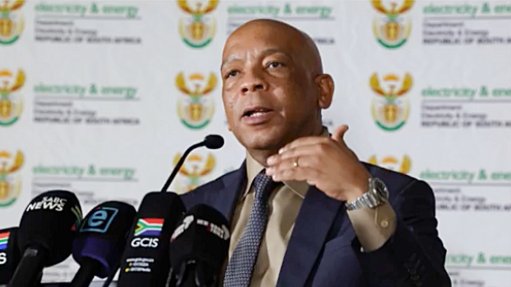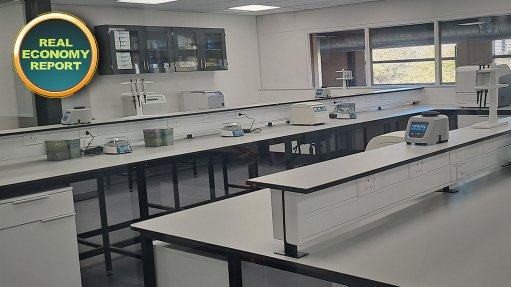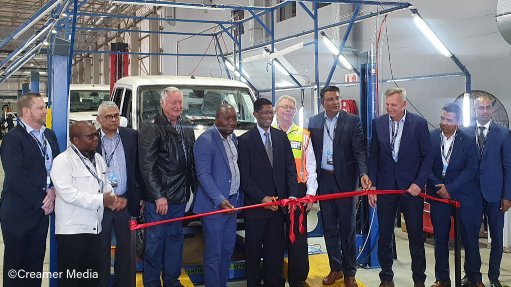SANBWA applauds plastics industry for commitment to recycling
This article has been supplied.
South Africa’s plastic recycling industry was severely challenged but delivered figures that are to be applauded.
This is the opinion of South African National Bottled Water Association (SANBWA) CEO, Charlotte Metcalf, who listed the major challenges as ongoing load-shedding, water shortages and high labour costs and, of course, adapting to COVID regulations within the workplace (many recyclers were unable to operate at full capacity for several months due to social distancing norms).
As a result, according to the latest figures (2020) released by the umbrella body representing the local plastics industry – Plastics SA, 461 500 tons of plastic waste were collected for recycling, of which 312 600 tons were successfully recycled back into raw materials.
This equates to an input recycling rate of 43.2% and saved 213 500 tons of CO2, the equivalent to the emission generated by 45 000 cars.
“One of Plastic SA’s most important messages to brand owners and consumers each year when it releases these recycling statistics is that suitable end-markets are critical for the sustainability of the plastics recycling industry,” Metcalf said.
“Some 296 500 tons of recyclate were used to produce new products in 2020 while 97 260 tons of recyclate was used to produce new packaging.
“Those sectors using large amounts of this recyclate are the recycled flexible packaging sector (22%), agricultural applications such as irrigation pipes and feed troughs (14%), and clothing and footwear (14%). The building and construction market sectors utilise 12% of recyclate for applications such as builders’ film, geotextiles and composite building panels.”
Metcalf concurred with Plastics SA that collaboration plays a key role in the plastics industry going forward to ensure that all stakeholders in the value chain collaborate and co-design sustainable product management principles, over the full value chain, that will ensure a complete circular life cycle for plastics.
She did, however, caution that misconceptions and blatant disinformation about recycling are among the biggest hurdles faced by the bottled water industry and the recycling sector in South Africa.
“The effects of ‘design for recycling’ on sustainability and the circular economy play a big role and one that the whole value chain needs to be a part of. However, we can only do so if we are aware and educated about the issues the recycling industry faces,” she said.
“Instead of following international trends blindly, producers, consumers and legislators must do what’s best for South Africa. And they can do that by critically examining the new technologies mooted to determine if they apply to the South African situation or if they would disrupt the very successful recycling streams that we have.
“For example, many are punting biodegradable bottles. South Africa’s recycling ecosystem, however, can’t accommodate these at present. And, if they are – by mistake – recycled with PET, the PET is contaminated and rendered worthless.
“Another example is the ‘box’ or ‘carton’. There are very few recycling plants in South Africa that can separate the cardboard from the ‘sleeve’ that ensures it doesn’t leak. As a result, they can’t be recycled and yet people believe boxed water is an alternative to PET.”
The best option, according to Metcalf, is to opt for a PET bottle and to recycle it. The PET recycling stream in South Africa is robust and well-managed and supports close to 66 000 South Africans.
Comments
Press Office
Announcements
What's On
Subscribe to improve your user experience...
Option 1 (equivalent of R125 a month):
Receive a weekly copy of Creamer Media's Engineering News & Mining Weekly magazine
(print copy for those in South Africa and e-magazine for those outside of South Africa)
Receive daily email newsletters
Access to full search results
Access archive of magazine back copies
Access to Projects in Progress
Access to ONE Research Report of your choice in PDF format
Option 2 (equivalent of R375 a month):
All benefits from Option 1
PLUS
Access to Creamer Media's Research Channel Africa for ALL Research Reports, in PDF format, on various industrial and mining sectors
including Electricity; Water; Energy Transition; Hydrogen; Roads, Rail and Ports; Coal; Gold; Platinum; Battery Metals; etc.
Already a subscriber?
Forgotten your password?
Receive weekly copy of Creamer Media's Engineering News & Mining Weekly magazine (print copy for those in South Africa and e-magazine for those outside of South Africa)
➕
Recieve daily email newsletters
➕
Access to full search results
➕
Access archive of magazine back copies
➕
Access to Projects in Progress
➕
Access to ONE Research Report of your choice in PDF format
RESEARCH CHANNEL AFRICA
R4500 (equivalent of R375 a month)
SUBSCRIBEAll benefits from Option 1
➕
Access to Creamer Media's Research Channel Africa for ALL Research Reports on various industrial and mining sectors, in PDF format, including on:
Electricity
➕
Water
➕
Energy Transition
➕
Hydrogen
➕
Roads, Rail and Ports
➕
Coal
➕
Gold
➕
Platinum
➕
Battery Metals
➕
etc.
Receive all benefits from Option 1 or Option 2 delivered to numerous people at your company
➕
Multiple User names and Passwords for simultaneous log-ins
➕
Intranet integration access to all in your organisation






